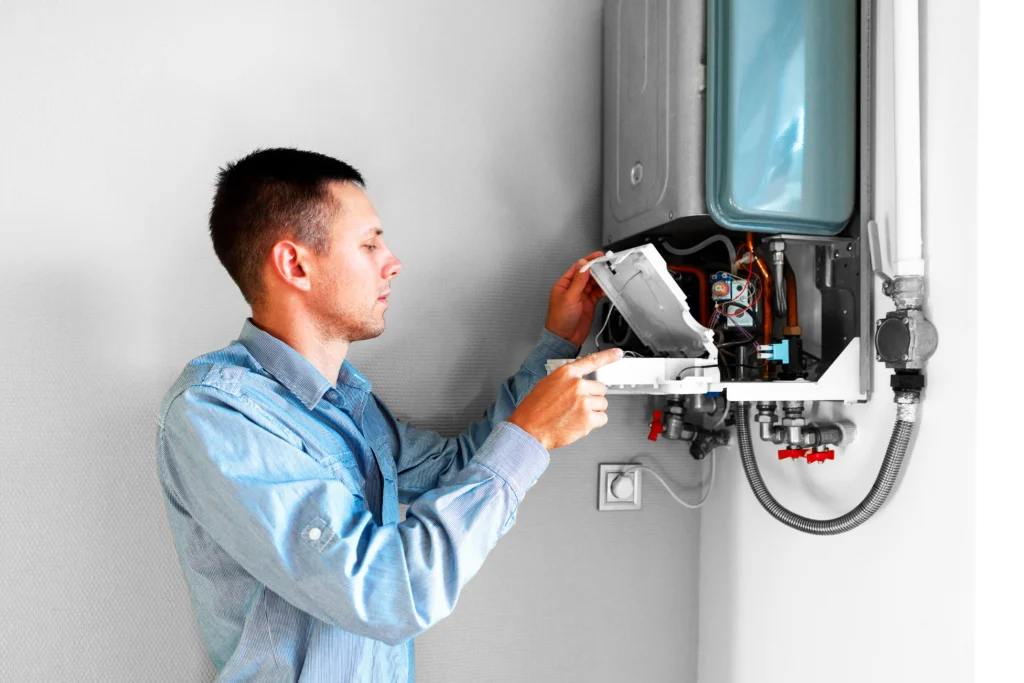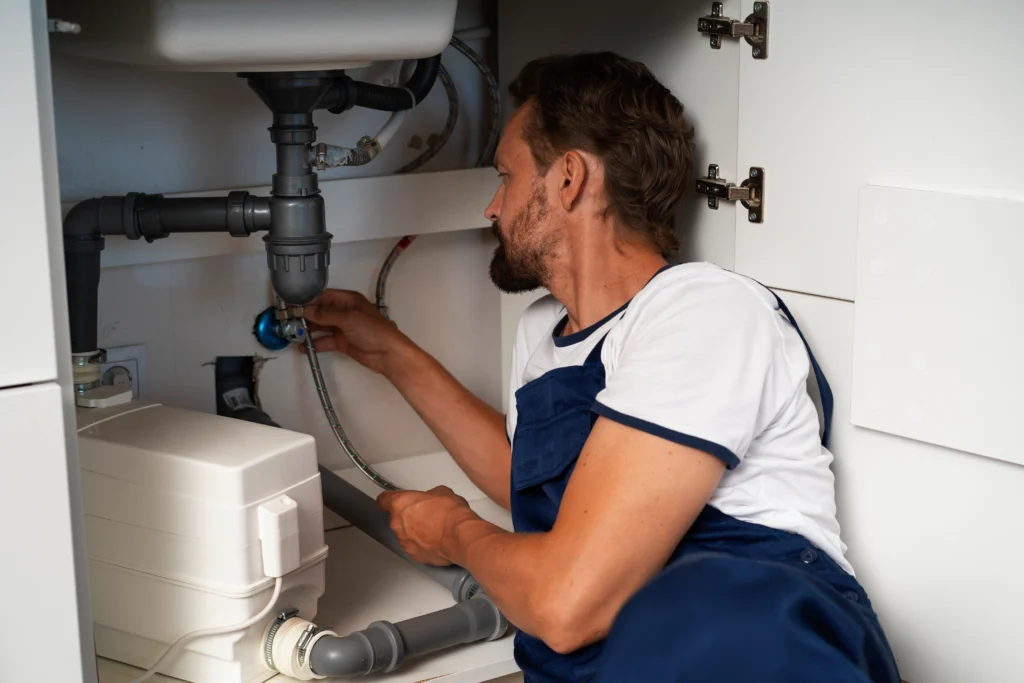
That big metal box Boiler Installation in the basement is starting to make some concerning noises, or maybe it’s just given up the ghost entirely. Now you’re left searching for a boiler installation near me and wondering one big thing: how much is a new boiler going to set me back?
The final Boiler Installation cost is like asking how much it costs to fix a car; it depends on the model, the problem, and the mechanic.
But don’t let that overwhelm you. Most homeowners across the USA end up paying somewhere between $4,200 and $10,000 for a full, professional install boiler job. Your final price for boiler installations could be lower or higher, and by the end of this, you’ll understand exactly why.
We’ll walk through the choices you’ll face that affect boiler cost and installation, the surprises you might encounter, and how you can potentially save some money along the way.
The Big Choices That Shape Your Final Bill for Boiler Installations
Think of your final cost as a puzzle. A few big pieces lock together to create the total picture. The first and biggest piece is the boiler itself, which drives boiler prices and installation more than anything else.
Picking Your New Boiler: The Star of the Show
You’ve got a few options here, each with its own personality and price tag.
- The Reliable Workhorse: The Standard Boiler
This is your classic system. It’s been around forever because it does its job well. Getting one of these installed will usually run you between $2,200 and $7,000. It’s the dependable choice for a straightforward gas boiler replacement cost.
- The Space-Saving Whiz: The Combi Boiler
Now, meet the modern innovator. The combi-boiler is a slick, wall-mounted unit that heats your home and provides hot water on demand. This cleverness and a more complex setup mean you’ll likely invest $6,000 to $10,000 for a boiler fitted cost. It’s perfect for smaller homes where space is tight.
- The Efficient Perfectionist: The High-Efficiency Model
For those of you who hate wasting money, this is the top-shelf choice. These boilers squeeze over 90% of the heat from every bit of fuel. That translates to serious savings on your monthly bills. You’ll pay for that premium performance, generally $4,000 to $11,000, making the overall boiler change cost higher upfront but cheaper over time.
What’s Powering It? The Fuel Factor
The next big question is what will make your boiler run. This is about your bills for the next 15 years.
- Natural Gas is the most common player. It often offers the best balance of cost and efficiency, with Boiler Installation typically in the $4,000 to $9,000 range.
- Oil boilers are powerful and effective, but they come with the need for a storage tank. Plan for $4,800 to $9,000.
- Propane is a fantastic option if you don’t have a gas line. Installation usually runs $2,800 to $7,500.
- Electric boilers are the champions of low upfront cost ($1,800 to $8,000) but can break the bank with shockingly high electric bills over time.
Your Home’s Size and The Labor Behind the Scenes
This one’s simple: a bigger house needs a bigger boiler. A professional will do a “Manual J” calculation to figure out the perfect size, a step you don’t want to skip.
And then there’s the expertise. You’re not just paying for a metal box; you’re paying for the skill to put it in safely and correctly. Labor will add another $1,200 to $3,200 to your bill. This is the worst place to try and cut corners. A good installation is everything.
Hidden Costs of Boiler Installation: Budgeting for Surprises
Every good story has a few plot twists. Your Boiler Installation might, too. It’s best to be prepared for them.
Before the new star can take the stage, the old one must have a graceful exit. Removing and disposing of your old boiler can add $200 to $500. Then there are the official permits, a non-negotiable step that ensures everything is safe and legal, costing $50 to $300.
Remediating it is a job for a specialized professional and can add a significant $1,150 to $3,000 or more to your project cost.

How to Keep Your Wallet Happy: Smart Ways to Save
Who doesn’t love a story where the hero saves the day and some money? You have more power over the final cost than you might think.
- Become a Comparison Shopper.
Don’t just call one company. Get at least three detailed, written quotes. This is the best way to understand the local market for Boiler Installation.
- Play the Long Game.
That high-efficiency model might have a higher sticker price, but it will quietly save you 10–20% on your fuel bills for the next 15 years.
- Claim Your Rewards.
Look for available incentives! The federal government offers tax credits for installing certain high-efficiency models, putting up to $600 back in your pocket.
- Choose Your Timing.
Try to schedule your Boiler Installation in the spring or summer. HVAC folks are swamped in the fall and winter, so you might just snag a better rate.
- Protect Your Investment.
Once your new boiler is humming along, don’t forget it. An annual service from a boiler service company ($200–$500) is like a regular health check-up.
Conclusion:
Enrolling in a boiler service plan can make this even easier. For some systems, especially commercial ones, considering boiler water treatment services or using the right boiler treatment chemicals can be part of commercial boiler water treatment to extend its life, though this is less common for homes.
The most important thing is to find an installer you trust. A good one will walk you through all these options and help you find the right boiler for your home and your budget.
Frequently Asked Questions
What is the real average cost for a boiler installation?
For a standard system, most people pay between $4,200 and $10,000. High-efficiency models and complex jobs can push that toward $11,000 or more.
How long will this entire process take?
A standard, straightforward replacement is often a one-day job. More complex scenarios, like a full system overhaul or moving the boiler’s location, can take two to three days.
Are high-efficiency boilers truly worth the extra money?
If you plan on staying in your home for more than a few years, absolutely. The reduction in your monthly energy bills will consistently eat away at that higher initial cost.
Is a DIY install to save money a good idea?
Please, don’t. This is one of the worst places to try DIY. The risks include gas leaks, carbon monoxide poisoning, voided warranties, and failing to meet code. Always hire a licensed professional.
How often does my new boiler need servicing?
Plan on a yearly servicing boiler check-up from a boiler service company. A quick annual service is cheap insurance against costly repairs.
What’s the typical lifespan of a boiler?
With proper annual maintenance, a quality boiler should keep your home warm for 15 to 30 years.
Do I need to replace all my old radiators too?
Not always. However, pairing a new, efficient boiler with old, clogged radiators means you won’t get the full performance. It’s worth discussing with your installer.
What are the signs that I need a replacement?
Rising bills, rooms that never get warm, strange banging noises, frequent repairs, and simply being over 15 years old are all clear signs it’s time for a replacement.
Will I need a new chimney liner?
Many modern high-efficiency boilers don’t need the chimney at all; they use a special sidewall vent. If your new system does require a liner, budget an additional $1,500 to $4,000.
Are there financing options?
Yes, most reputable HVAC companies offer financing plans. This allows you to spread the boiler installation cost over time, making it more manageable.